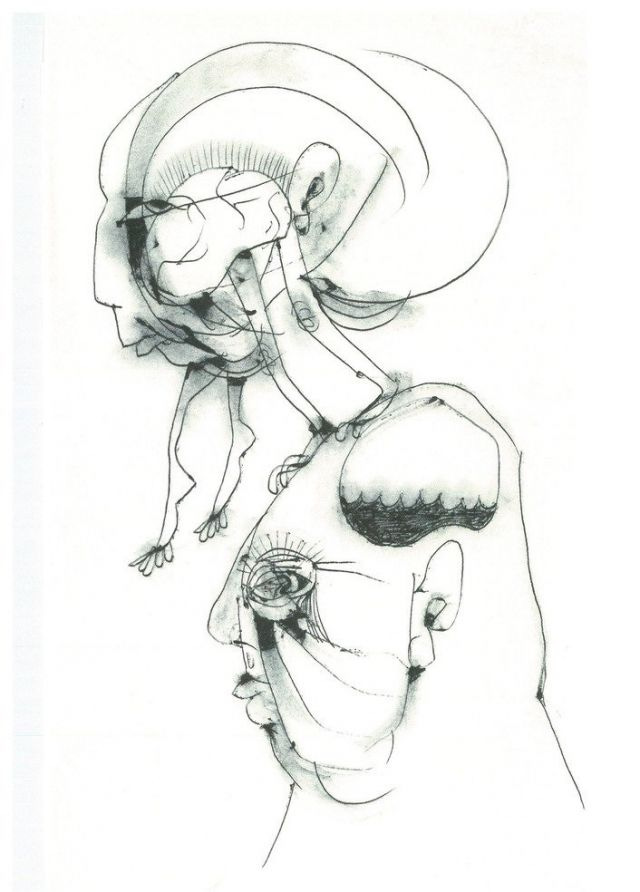Franchise Evolution
Maddd Science

I'm sure you've heard people complain that Hollywood movies are all just franchise tentpoles nowadays. Welcome to an issue about that.
This first essay, which is the whole reason I themed this issue on franchises, is from 2014, but it addresses the whole thing more elegantly than anything else I've read on the topic. All without ever reducing itself to a "a gravelly Gran Torino old-man rant," either.
The Birdcage: How Hollywood’s toxic (and worsening) addiction to franchises changed movies forever in 2014
Mark Harris, Grantland
The future of Hollywood movies right now — at least, as it lives in the hands of five-year planners — feels somehow small and cautious, a dream dreamed by people whose sugarplum visions of profit maximization depend on the belief that things will never change.
Is that your dream? Think of how old you’ll be in 2020. Where will you be in your life? What will be different? Do you imagine that your taste will be exactly what it is today? Hollywood profoundly hopes the answer is yes.
How Tom Cruise turns great directors into his personal brand managers
Peter Suderman, Vox
Cruise built his career the way Marvel built its cinematic universe: using big-name directors in the service of canny brand management.
I knew I should have waited another week for those Stranger Things essays to trickle in. Here's a great one that still falls under this week's theme, aka franchise (lack of) evolution.
Stranger Things 2 keeps its “strong female characters” apart from one another, like every Hollywood genre property
Caroline Siede, The AV Club
Stranger Things 2 may star multiple women, but in practice they just wind up being the sole Smurfettes in their own male-centric storylines.
[...]Yes, we need more female genre leads, but the fact is Hollywood has also been writing them for a while now—from Princess Leia in Star Wars to Ellen Ripley in Alien to Sarah Connor in The Terminator. What we see far less frequently is female genre leads who actually interact with other women.
And speaking of failing to evolve with the times:
The Marketable Misogyny of James Bond
Benjamin Winterhalter, JSTOR Daily
By pressing viewers to deny emotions and trading on common male fantasies of unrestricted sexual access, James Bond effectively functions as a kind of advertisement for the British secret service—mostly seeking political support but not averse to actual enlistment—and it is the longest-running advertisement of its kind.
Bond should have taken a page from my favorite new police procedural:
Mindhunter Is a Surprisingly Good Commentary on Toxic Masculinity
Angelica Jade Bastién, Vulture
The crimes are seen in perfunctory photos the characters mill over when they help local law enforcement or seek to discern the inner workings of a particular killer being interviewed. The camera never stays on them long enough for its gaze to feel exploitative or cruel. If anything, the series is pointedly clinical, using its crime drama trappings to instead uncover the horror of misogyny in conversations between the agents and the imprisoned killers they study.
And in entirely different news:
How This Couple Earns $6k/Month Sharing Haunted Objects With A Tiny Fanbase
Jera Brown, The Patreon Blog
All thanks to their Patreon supporters, the couple are living their dream: traveling from coast to coast in their Toyota Scion (affectionately known as the “Adventuremobile”) filled to the brim with their personal collection of paranormal artifacts.
Here's a well-balanced look at whether virtual reality could actually turn into the addictive drug-analog that so much 90s sci-fi treated it as.
The Ultimate Escapism
Ramin Skibba, Slate Future Tense
With each technological advance, critics and public health advocates raise concerns, which may be legitimate or exaggerated depending on one’s perspective. Where kids’ time spent fixated on television screens once alarmed their parents, now smartphone screen time and social media perform that function. Each time, people worried about tech alienating people and contributing to social isolation.
This twitter thread on how playing as a kid affects the way a writer crafts a narrative as an adult
Noelle Stevenson, Twitter
Talking to Molly about how we plan stories in our heads, and realizing that I write exactly the way I used to play with action figures. For me it's all about the characters, and the setting is fluid and can become anything the characters need it to be. But Molly grew up LARPing, so she sees narratives as being very ingrained in tactile, realistic spaces.
Video: Beverly Hills Cop Promo
Let’s play out a hypothetical. You’re a marketer with one goal: Making an ad for the 80s Beverly Hills Cop franchise that is attention-grabbing and creative while perfectly embodying the carefree spirit of the films. How would you do it? Now, watch this. This is how it’s done.
Next Week, on Maddd Science: Superheroes.
Header image: "untitled" by Daniel Williams